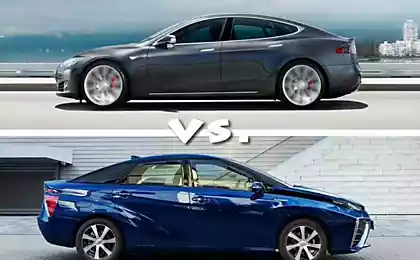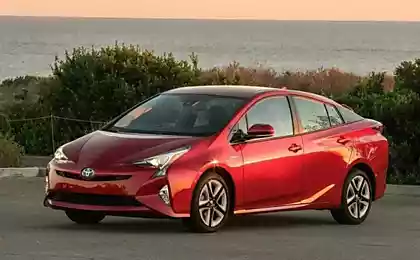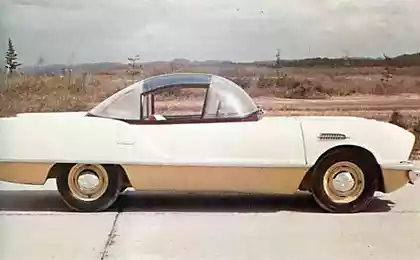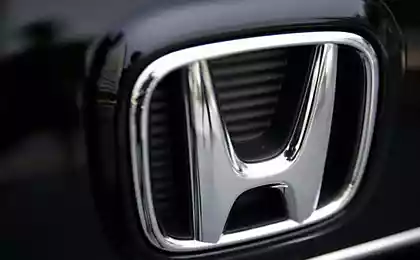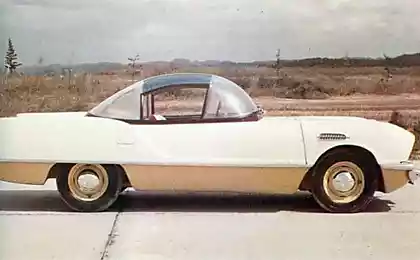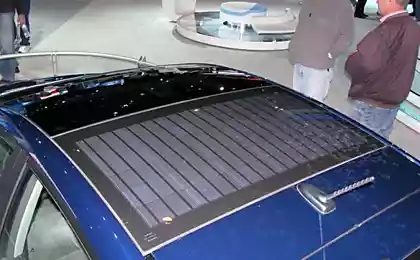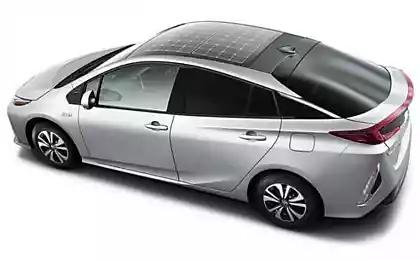511
The most environmentally friendly car in the world
Non-profit organization U.S. American Council for an energy-efficient economy (American Council for an Energy Efficient Economy, ACEEE) recently published its annual list of the greenest cars. Despite the fact that the rating is called "the green ten", the number of cars in it anymore. Obviously, this is due to the presence of different manufacturers models, very similar minimal impact on the environment.
First place in the 2013 ranking confidently took the hybrid Toyota Prius C, edging out the second place Honda Fit EV. How could it happen that burning gasoline hybrid proved to be more "green" than completely devoid of any emissions the electric car? It's all about the arithmetic.
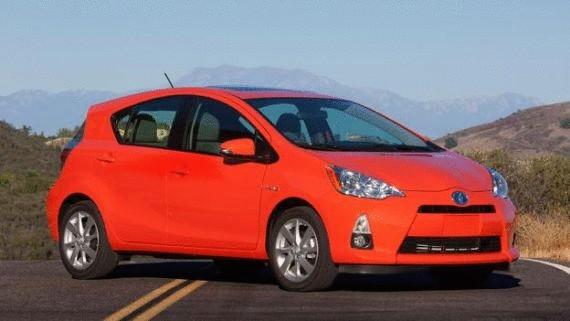
Each position in the ranking is justified "green" points, which are calculated according to a formula. It takes into account the ACEEE as I could and greenhouse gases emitted by vehicles and companies that produce electricity to charge the batteries of electric vehicles.
In addition, when determining the position in the ranking takes into account the energy required for the production of vehicles and the environmental impact of disposal at end-of-life vehicle and its components. Did not remain without attention and performance efficiency.
As a result of these calculations in the first place with 58-Ju points out a subcompact hybrid hatchback Toyota Prius C with an engine capacity of 1.5 liters. Its energy efficiency is 53 miles mileage per gallon of gasoline (4,44 l/100 km).
All-electric Honda Fit EV scored one point less, 57. No fuel, he consumes, and not able to drive any miles per gallon, liter or ton of gasoline. Instead of litres of hydrocarbon fuel an electric car uses kilowatt-hours of electricity. On one kilowatt-hour Fit EV is able to run the 3.9 miles (6,28 km) in the city and 3.1 (4,99 km) on the highway. A fully charged battery it enough for the mileage to 80 miles (128,75 km).
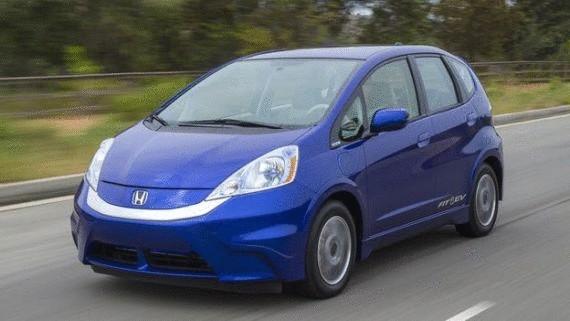
Places from third to fifth ranked cars scored the same number of points — 55. For Toyota Prius with a 1.8 liter motor and rechargeable Toyota Prius Plag-in Hybrid should hybrid Honda Civic. To determine the distribution of positions was the performance efficiency.
Next are hybrid cars Honda Insight (54 points) and Volkswagen Jetta (53 points). Despite the difference in assessment, the product of the German automotive industry more economical.
The following two positions on a unique rating a couple of cars with exclusively by internal combustion engines. They were Mercedes-Benz Smart ForTwo and Scion IQ. Typing the same number of points as the Jetta, these miniature cars were inferior to her in terms of fuel consumption.
Electric Ford Focus Electric and the hybrid Toyota Prius V took 10th and 11th positions with the same number of points – 52. Completes the rating of a tandem hybrid cars Ford Fusion/Ford C-Max, owners of the largest internal combustion engine volume of 2.0 liters. They score 51 points.
As you can see, the overall rating may be called the Board of honor of the Japanese automobile industry, and the unconditional leader in hybrids, Toyota Prius.
Source: /users/104
First place in the 2013 ranking confidently took the hybrid Toyota Prius C, edging out the second place Honda Fit EV. How could it happen that burning gasoline hybrid proved to be more "green" than completely devoid of any emissions the electric car? It's all about the arithmetic.

Each position in the ranking is justified "green" points, which are calculated according to a formula. It takes into account the ACEEE as I could and greenhouse gases emitted by vehicles and companies that produce electricity to charge the batteries of electric vehicles.
In addition, when determining the position in the ranking takes into account the energy required for the production of vehicles and the environmental impact of disposal at end-of-life vehicle and its components. Did not remain without attention and performance efficiency.
As a result of these calculations in the first place with 58-Ju points out a subcompact hybrid hatchback Toyota Prius C with an engine capacity of 1.5 liters. Its energy efficiency is 53 miles mileage per gallon of gasoline (4,44 l/100 km).
All-electric Honda Fit EV scored one point less, 57. No fuel, he consumes, and not able to drive any miles per gallon, liter or ton of gasoline. Instead of litres of hydrocarbon fuel an electric car uses kilowatt-hours of electricity. On one kilowatt-hour Fit EV is able to run the 3.9 miles (6,28 km) in the city and 3.1 (4,99 km) on the highway. A fully charged battery it enough for the mileage to 80 miles (128,75 km).

Places from third to fifth ranked cars scored the same number of points — 55. For Toyota Prius with a 1.8 liter motor and rechargeable Toyota Prius Plag-in Hybrid should hybrid Honda Civic. To determine the distribution of positions was the performance efficiency.
Next are hybrid cars Honda Insight (54 points) and Volkswagen Jetta (53 points). Despite the difference in assessment, the product of the German automotive industry more economical.
The following two positions on a unique rating a couple of cars with exclusively by internal combustion engines. They were Mercedes-Benz Smart ForTwo and Scion IQ. Typing the same number of points as the Jetta, these miniature cars were inferior to her in terms of fuel consumption.
Electric Ford Focus Electric and the hybrid Toyota Prius V took 10th and 11th positions with the same number of points – 52. Completes the rating of a tandem hybrid cars Ford Fusion/Ford C-Max, owners of the largest internal combustion engine volume of 2.0 liters. They score 51 points.
As you can see, the overall rating may be called the Board of honor of the Japanese automobile industry, and the unconditional leader in hybrids, Toyota Prius.
Source: /users/104

